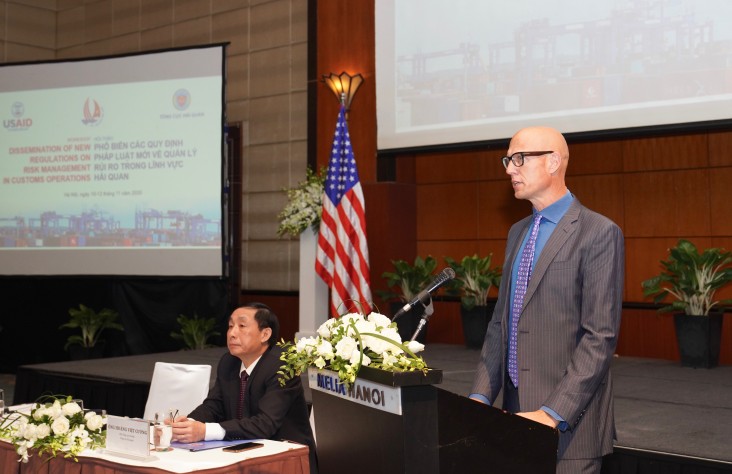Speeches Shim

A risk-based management approach helps customs authorities detect illegal trade by identifying potential fraud based on an analysis of past patterns of some products or trading companies. This helps to minimize fraud and expedite customs clearance. The Government of Vietnam has classified risk management as a commitment, as a component of the World Trade Organization’s Trade Facilitation Agreement, which has not yet been implemented and requires technical assistance. To address this, for the past year, the USAID Trade Facilitation Program has provided technical assistance to the General Department of Vietnam Customs (GDVC) to develop Circular 81 (a new legal instrument on risk management).
From October 28-30 and November 10-12, the USAID Trade Facilitation Program collaborated with GDVC to organize workshops in Ho Chi Minh City and Hanoi respectively to introduce Circular 81 to private sector stakeholders and customs officials across the country. The issuance of Circular 81 is a milestone for Vietnam as it is the first legal instrument on risk management in Customs operations. The workshops also introduced participants to key elements of a new Voluntary Compliance Program for Traders, which if implemented, will help businesses comply with evolving risk management regulations and procedures, thereby reducing the time and cost to trade.
So What? Successful adoption of a risk-based approach to customs and improving the current risk management system will contribute to reducing clearance times and facilitating trade for businesses while still ensuring effective management and enforcement by customs. It will also create a more predictable trade and investment climate for international traders and investors, including those in the United States.

Comment
Make a general inquiry or suggest an improvement.